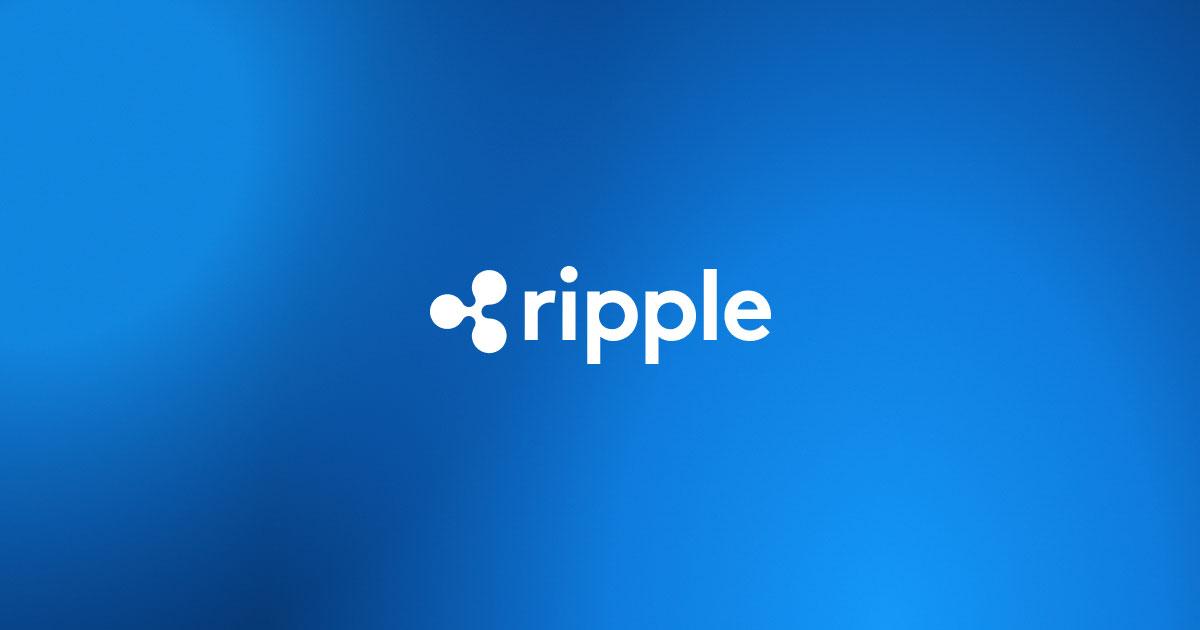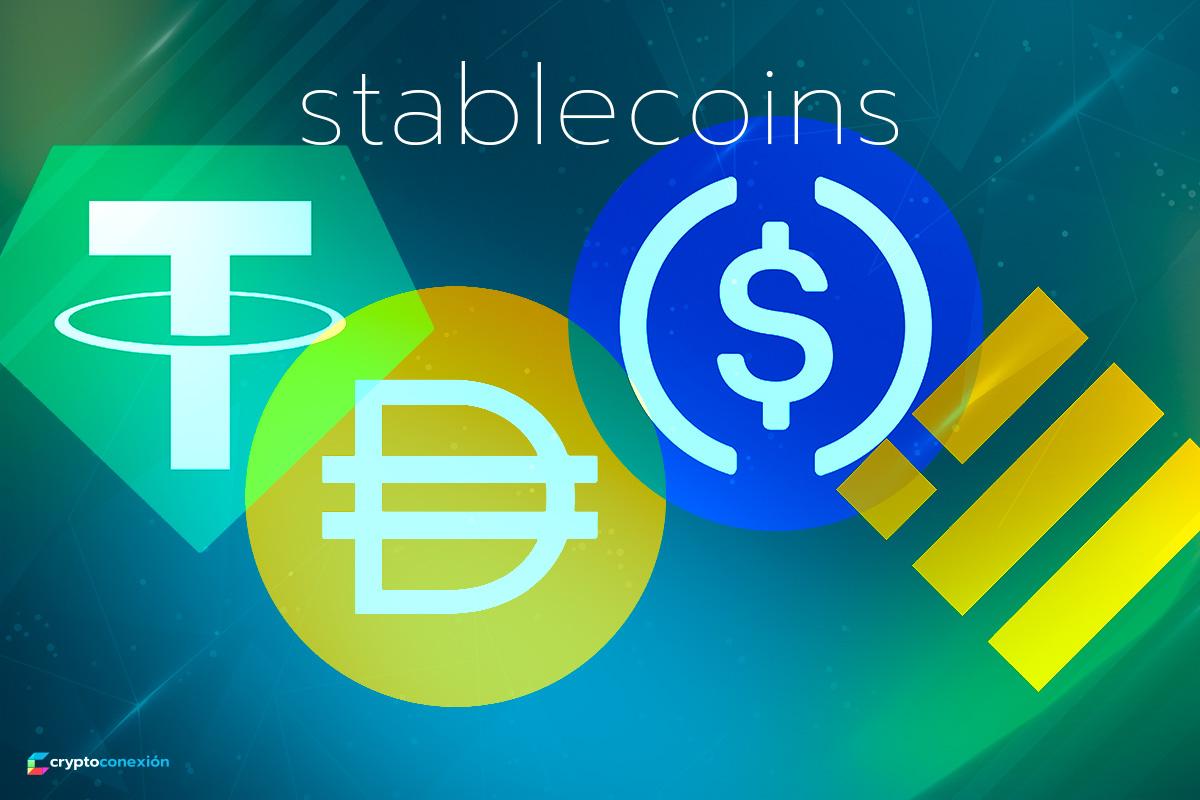In a significant turning point for the cryptocurrency landscape, New York regulators have paved the way for Ripple’s latest innovation: the RLUSD stablecoin. This approval, heralded by Ripple’s CEO, Brad Garlinghouse, marks a crucial step in the ongoing evolution of digital assets, reinforcing the growing push for regulatory clarity within the blockchain space. As the financial world grapples with the implications of stablecoins, the introduction of RLUSD promises to offer a new level of stability and accessibility in digital transactions. In this article, we delve into the details surrounding the approval, its potential impact on the crypto market, and what it means for the future of Ripple and the broader financial ecosystem.
Table of Contents
- Ripple’s RLUSD Stablecoin Gains Approval from NY Regulator
- Understanding the Implications of Regulatory Approval on the Crypto Market
- Exploring the Technological Advancements Behind RLUSD
- Future Outlook: Recommendations for Investors in the Evolving Stablecoin Landscape
- Q&A
- Insights and Conclusions

Ripple’s RLUSD Stablecoin Gains Approval from NY Regulator
Ripple Labs has achieved a significant milestone with the approval of its RLUSD stablecoin by the New York State Department of Financial Services (NYDFS). This decision not only validates Ripple’s commitment to regulatory compliance but also positions RLUSD as a pioneer in the rapidly evolving landscape of digital currencies. Brad Garlinghouse, Ripple’s CEO, expressed optimism about the approval, emphasizing the potential for stablecoins to facilitate seamless cross-border transactions and improve financial access for a broader audience. Ripple’s innovative approach leverages blockchain technology to create a mechanism that fosters transparency and stability in the volatile cryptocurrency market.
With RLUSD now officially sanctioned, users can look forward to several benefits that underscore Ripple’s vision for the future of money:
- Enhanced Stability: As a stablecoin pegged to the US dollar, RLUSD aims to minimize price volatility, offering a reliable digital asset.
- Regulatory Assurance: The approval from NYDFS ensures that RLUSD operates within a well-established regulatory framework, boosting investor confidence.
- Seamless Transactions: The integration of RLUSD into Ripple’s payment solutions promises faster, cost-effective cross-border transactions.
| Feature | Description |
|---|---|
| Regulatory Compliance | Approved by NYDFS, ensuring adherence to state regulations. |
| Pegged Value | Each RLUSD token is backed 1:1 by the US dollar. |
| Use Cases | Ideal for remittances, merchant services, and digital payments. |

Understanding the Implications of Regulatory Approval on the Crypto Market
Regulatory approval plays a significant role in shaping the landscape of the cryptocurrency market, as evidenced by the recent endorsement of Ripple’s RLUSD stablecoin by New York regulators. This approval sends a clear signal to investors and market participants that certain digital assets can meet compliance standards, potentially paving the way for broader acceptance. With regulatory frameworks becoming more defined, we may see an increase in institutional investment, as major players often seek to mitigate risk by aligning with compliant assets. The implications extend beyond the regulatory environment; they can influence market perception and investor confidence, impacting liquidity and overall market dynamics.
Key implications of this regulatory milestone include:
- Increased Institutional Interest: As compliance becomes a priority, institutional investors may be more inclined to explore opportunities in compliant cryptocurrencies like RLUSD.
- Market Stability: Regulatory oversight can enhance market stability, which is often desired by investors wary of the volatility associated with unregulated cryptocurrencies.
- Encouragement for Innovation: With a clearer regulatory path, startups and innovators may feel encouraged to develop new products and services around compliant digital assets.
| Aspect | Impact |
|---|---|
| Investor Confidence | Increased |
| Market Liquidity | Potentially Higher |
| Regulatory Clarity | Improved |

Exploring the Technological Advancements Behind RLUSD
The successful approval of Ripple’s RLUSD by New York regulators marks a significant leap in the world of stablecoins, driven by cutting-edge technological advances. At the core of this innovation lies the robust XRP Ledger, a decentralized technology designed to enable secure, instant, and low-cost international money transfers. The unique architecture of the XRP Ledger ensures that transactions are settled in seconds, providing users with enhanced flexibility and trust. Key features of this technology include:
- Scalability: Capable of processing up to 1,500 transactions per second.
- Energy Efficiency: The consensus mechanism minimizes energy consumption compared to traditional blockchain networks.
- Interoperability: Seamless integration with other financial systems and cryptocurrencies.
In addition to these advancements, Ripple employs smart contracts that facilitate programmable payments, allowing users to automate transactions with predefined terms. This not only streamlines the payment process but also enhances security, reducing the possibility of human error. Ripple’s commitment to compliance and regulatory standards further strengthens the confidence of potential users in utilizing their RLUSD stablecoin. As we delve deeper into its impact, it’s essential to analyze its implications for both the crypto ecosystem and traditional financial institutions, paving the way for future innovations.

Future Outlook: Recommendations for Investors in the Evolving Stablecoin Landscape
The approval of Ripple’s RLUSD stablecoin by New York regulators marks a significant turning point in the stablecoin market. Investors should remain vigilant and consider diversifying their portfolios to mitigate risks associated with regulatory changes and market volatility. As new stablecoins emerge and existing ones evolve, it becomes crucial to identify those that comply with regulatory frameworks while also delivering on transparency and security. A few strategies to consider include:
- Conducting thorough research: Investigate the underlying technology and governance models of various stablecoins.
- Diversifying holdings: Distribute investments across multiple stablecoins to avoid overexposure to any single asset.
- Monitoring compliance: Stay updated on regulatory developments and how they impact the operational capacity of stablecoins.
Furthermore, understanding the market dynamics surrounding stablecoins can provide insights into broader cryptocurrency trends. Ripple’s RLUSD could serve as a litmus test for how regulatory bodies approach stablecoin technology. Investors should also consider the potential for stablecoins to integrate into mainstream financial systems. Keeping an eye on partnerships and technology advancements is essential. Key factors to focus on include:
- Liquidity and usage: Assess transaction volumes and use cases to gauge real-world adoption.
- Technological innovation: Follow projects that offer unique solutions to existing issues in the crypto space.
- Community support: Analyze the engagement and sentiment within the stablecoin’s community, as it can influence the project’s longevity.
Q&A
Q&A: Ripple’s RLUSD Stablecoin Approval by NY Regulator
Q1: What recent development took place regarding Ripple’s RLUSD stablecoin?
A1: The New York State Department of Financial Services (NYDFS) has officially approved Ripple’s RLUSD stablecoin, marking a significant milestone for the company in the evolving landscape of digital currencies.
Q2: Who is Brad Garlinghouse, and what did he say about this approval?
A2: Brad Garlinghouse is the CEO of Ripple, a technology company that specializes in blockchain and digital payment solutions. Following the NYDFS’s approval, he expressed optimism about the potential of RLUSD, highlighting its role in enhancing financial transactions and reinforcing Ripple’s commitment to regulatory compliance.
Q3: What is a stablecoin, and how does RLUSD fit into this category?
A3: A stablecoin is a type of cryptocurrency designed to maintain a stable value by pegging it to a reserve of assets, typically fiat currencies like the US dollar. RLUSD is designed to mirror the value of the US dollar, providing users with a less volatile option for digital transactions and bridging the gap between traditional finance and the blockchain world.
Q4: Why is the approval from the NY regulator significant for Ripple and the broader cryptocurrency market?
A4: The approval signifies regulatory recognition and legitimacy for Ripple, which can instill confidence in investors, businesses, and consumers. It also sets a precedent for other cryptocurrencies seeking similar recognition, potentially encouraging innovation while ensuring compliance with regulatory standards in the cryptocurrency space.
Q5: How does this approval impact Ripple’s future projects or goals?
A5: This approval is expected to bolster Ripple’s initiatives to expand its offerings within the stablecoin ecosystem. Garlinghouse indicated that it paves the way for enhanced partnerships with financial institutions and could lead to increased adoption of digital currencies in everyday transactions.
Q6: What can we expect next from Ripple following this news?
A6: Following this approval, Ripple may ramp up its marketing efforts for RLUSD, engage with financial institutions interested in utilizing the stablecoin, and possibly expand its product lineup to incorporate additional regulatory-approved financial services and digital assets.
Q7: What implications does Ripple’s RLUSD approval have for users and investors?
A7: For users, the approval means a new, regulated option for accessing stablecoin functionality, which could enhance user experience in digital transactions. For investors, this approval may signal a more stable investment environment within the cryptocurrency market, potentially attracting more institutional interest and support.
Q8: Is there any advice for individuals interested in using the RLUSD stablecoin?
A8: Individuals considering the use of RLUSD should familiarize themselves with stablecoins’ inherent risks and rewards. They should also ensure they are compliant with local regulations, especially around KYC (Know Your Customer) and AML (Anti-Money Laundering) procedures when engaging with cryptocurrency exchanges.
Q9: How does this approval reflect the overall growth of the cryptocurrency industry?
A9: Ripple’s RLUSD approval reflects a growing trend toward regulatory acceptance of cryptocurrencies and blockchain technology. As more regulators start to embrace and approve digital assets, it showcases the potential for cryptocurrencies to play a legitimate role in the financial ecosystem, fostering innovation and trust among users.
Insights and Conclusions
As the curtain falls on this pivotal moment for the cryptocurrency landscape, the approval of Ripple’s RLUSD stablecoin by NY regulators marks a significant milestone not only for the company but also for the broader adoption of digital assets. With Brad Garlinghouse at the helm, Ripple continues to push boundaries and redefine the intersection of finance and technology. As we move forward, the implications of this approval will ripple through the industry, shaping the future of stablecoins and digital currencies in ways yet to be fully realized. Stakeholders will undoubtedly be watching closely as Ripple sets out to navigate this new chapter, and the ensuing developments promise to be both intriguing and impactful. In a world where regulatory clarity is increasingly sought after, Ripple’s success could serve as a blueprint for others. The journey is only just beginning, and the landscape of digital finance may never be the same.

ivermectin tablets for sale walmart – carbamazepine 400mg us carbamazepine price
accutane 40mg canada – dexamethasone 0,5 mg sale order zyvox sale
purchase amoxil sale – buy amoxicillin pills buy cheap generic ipratropium
buy azithromycin 500mg pills – cost tindamax 500mg nebivolol drug
buy prednisolone 20mg pill – oral azithromycin 250mg buy prometrium 100mg pill
gabapentin 100mg brand – order anafranil 25mg pills sporanox 100mg over the counter
order lasix – how to buy furosemide buy betnovate 20 gm
order doxycycline online – glucotrol brand glipizide order
buy augmentin 625mg for sale – ketoconazole for sale duloxetine online
augmentin 1000mg pills – buy augmentin 375mg pill purchase cymbalta pills
semaglutide 14mg sale – semaglutide 14 mg sale cyproheptadine brand
buy zanaflex sale – cost plaquenil 200mg order microzide 25 mg pills
cialis pills 40mg – order viagra without prescription viagra 50mg generic
order cenforce 50mg generic – metformin 1000mg brand glycomet 500mg us
order lipitor generic – cheap lisinopril 2.5mg zestril 5mg canada
order omeprazole 20mg without prescription – purchase lopressor for sale atenolol 100mg brand
depo-medrol generic – buy lyrica 75mg generic aristocort pill
buy clarinex 5mg without prescription – claritin price dapoxetine 60mg brand
misoprostol 200mcg uk – cytotec brand diltiazem 180mg usa
order zovirax 400mg pill – order acyclovir online cheap buy crestor 10mg generic
motilium for sale online – buy cheap cyclobenzaprine cyclobenzaprine drug
motilium pill – buy cheap cyclobenzaprine cyclobenzaprine 15mg oral
brand inderal 10mg – propranolol without prescription order methotrexate pill
warfarin 2mg us – buy reglan 10mg online hyzaar oral
esomeprazole usa – buy topamax 200mg pill buy sumatriptan 25mg online cheap
levaquin 250mg tablet – order generic avodart buy generic ranitidine online
meloxicam brand – tamsulosin 0.4mg ca flomax order online
ondansetron order – zocor 10mg cost order generic simvastatin
oral valtrex 1000mg – order valacyclovir 500mg generic forcan price
buy provigil pills modafinil buy online order modafinil online buy cheap generic modafinil provigil usa buy provigil 100mg online generic modafinil 100mg
This website positively has all of the tidings and facts I needed about this case and didn’t identify who to ask.
Greetings! Jolly gainful par‘nesis within this article! It’s the little changes which liking make the largest changes. Thanks a a quantity quest of sharing!
order azithromycin 500mg pill – buy ciplox sale metronidazole 200mg ca
buy semaglutide 14 mg for sale – order generic cyproheptadine 4 mg periactin 4mg drug
motilium order online – cyclobenzaprine 15mg sale buy flexeril 15mg sale
purchase inderal online cheap – buy methotrexate 10mg sale brand methotrexate 5mg
amoxil price – cheap amoxicillin pill ipratropium 100mcg uk
cost zithromax 500mg – buy tinidazole 500mg online cheap order nebivolol 5mg generic
augmentin 625mg over the counter – https://atbioinfo.com/ cheap ampicillin
purchase esomeprazole – anexamate esomeprazole order
buy coumadin 5mg pills – https://coumamide.com/ buy losartan 50mg generic
meloxicam 15mg sale – https://moboxsin.com/ order mobic for sale
deltasone 5mg without prescription – aprep lson deltasone 40mg pill
non prescription ed drugs – best over the counter ed pills best erection pills
amoxil brand – order amoxicillin online cheap amoxicillin medication
buy cheap generic forcan – https://gpdifluca.com/# order diflucan 100mg without prescription
order cenforce 100mg for sale – site purchase cenforce pills
cialis for sale over the counter – https://ciltadgn.com/ buying cialis online
ranitidine generic – site how to buy ranitidine
tadalafil tablets – https://strongtadafl.com/# cialis from canada
Facts blog you possess here.. It’s obdurate to find strong status belles-lettres like yours these days. I truly appreciate individuals like you! Withstand care!! amoxil para perros
red viagra tablets – on this site can i buy viagra in japan
Greetings! Extremely productive par‘nesis within this article! It’s the little changes which liking espy the largest changes. Thanks a lot towards sharing! https://buyfastonl.com/furosemide.html
More content pieces like this would make the web better. https://ursxdol.com/ventolin-albuterol/
This is the kind of literature I rightly appreciate. https://prohnrg.com/product/priligy-dapoxetine-pills/
I’ll certainly bring back to read more. https://aranitidine.com/fr/acheter-cialis-5mg/
Greetings! Very gainful suggestion within this article! It’s the scarcely changes which choice espy the largest changes. Thanks a quantity in the direction of sharing! https://ondactone.com/simvastatin/
Good blog you have here.. It’s severely to assign great calibre belles-lettres like yours these days. I really appreciate individuals like you! Take care!!
https://proisotrepl.com/product/baclofen/
I couldn’t turn down commenting. Warmly written! http://web.symbol.rs/forum/member.php?action=profile&uid=1170911
purchase dapagliflozin for sale – this dapagliflozin cheap
buy xenical generic – https://asacostat.com/ xenical sale
You can conserve yourself and your ancestors nearby being wary when buying panacea online. Some druggist’s websites function legally and put forward convenience, privacy, rate savings and safeguards as a replacement for purchasing medicines. buy in TerbinaPharmacy https://terbinafines.com/product/zanaflex.html zanaflex
I’ll certainly bring to be familiar with more. TerbinaPharmacy
This is a topic which is virtually to my callousness… Many thanks! Exactly where can I notice the contact details an eye to questions?
https://t.me/s/site_official_1win/77
https://t.me/officials_pokerdom/3669
https://t.me/s/Legzo_officials
https://t.me/s/dragon_money_mani/12
В мире ставок, где каждый ресурс пытается зацепить заверениями быстрых призов, казино рейтинг 2025
является той самой картой, что проводит через заросли рисков. Тем ветеранов и начинающих, кто надоел из-за фальшивых обещаний, это средство, чтобы почувствовать реальную отдачу, будто вес выигрышной монеты в пальцах. Без ненужной ерунды, только надёжные площадки, где отдача не лишь показатель, а ощутимая фортуна.Подобрано по яндексовых трендов, будто сеть, что ловит самые актуальные тенденции на интернете. В нём отсутствует пространства про шаблонных трюков, всякий пункт будто ход на игре, в котором блеф выявляется сразу. Профи видят: на России тон письма на подтекстом, там юмор маскируется как рекомендацию, помогает обойти ловушек.В http://www.don8play.ru/ такой топ ждёт как готовая колода, подготовленный для игре. Загляни, если желаешь увидеть биение настоящей ставки, без обмана да провалов. Тем тех знает ощущение удачи, такое как взять ставку в ладонях, минуя смотреть по дисплей.